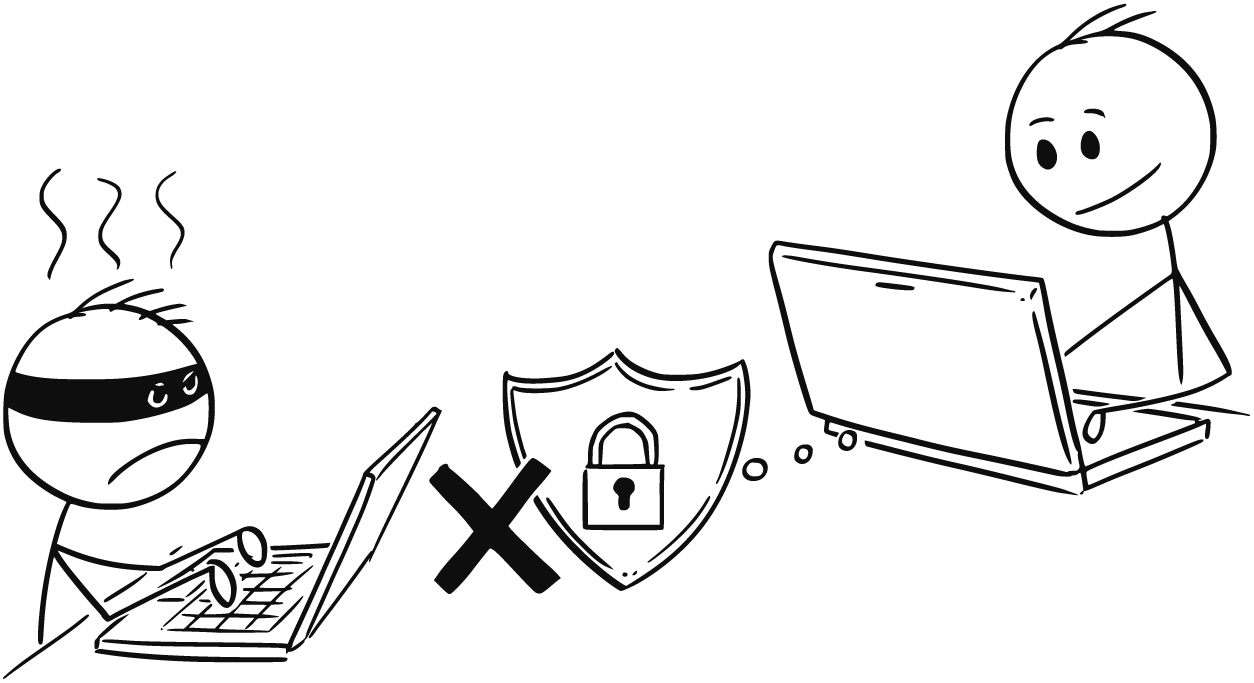Accept
Protect Your Accounts: Top 6 Real-World Password Best Practices in 2020

Email, Facebook, bank accounts and shopping sites? it seems like everything requires a password these days! With so many passwords to remember, it can be tempting to take shortcuts when it comes to creating a strong password. But, the importance of practicing and developing healthy password habits is key to protecting your digital life.
Using these 6 real-world password best practices in 2020 can help keep your digital life safe and secure.
1. Don't use the same password for multiple services and accounts
Recycling the same password is one of the worst offenses when it comes to secure passwords. You have most likely heard this before, but you might not know why this is so important.
When you sign up for services, you don't know to what level of security they are executing to safe-guard your information. It is almost a daily occurrence to hear about large data breaches in the news. Bad actors can infiltrate your online accounts and steal your information. If you're the victim of a data breach your password will most likely end up in a database somewhere online. Criminals know of these databases, which are one of the first things they check when trying to crack your password. This check can be done with computer programs, and hundreds or thousands of sites can be checked in a matter of minutes.If you use that same password across multiple services, they then have immediate access, putting all of your accounts at risk. Use a unique password for each service to limit your risk.
2. If you use just a few passwords, delegate appropriately
Ideally, you should have a different password for every account. If you have multiple accounts and find yourself using only a few different passwords, you should be mindful of how you delegate them. For example, if you registered on Facebook with your email of john.doe@gmail.com, your email password should be different than your Facebook password. Another example is your bank account. The email address that you log in with or that is associated with your account should have a different password than your bank account.
3. Use a strong password
Using a unique password is critically important to keeping safe online. Passwords are typically character strings (Csrc.nist.gov, 2019). Sure, it is easier to remember a password containing words or familiar phrases, but those are also easier to crack. Use this guide to assist you in creating a strong and secure password:
- Make your password greater than 15 characters in length
- Use special characters in your password, ex:@#$%{ } [ ] ( ) / \ ' " ` ~ , ; : . < >
- Mix upper and lower case
- Avoid sequences, ex: abc, 123
- Avoid using dictionary words
- Avoid using or making a password that contains these most common weak passwords (CNN, 2019):
- 123456
- 123456789
- qwerty
- password
- 111111
- 12345678
- abc123
- 1234567
- password1
- 12345
4. Use a password manager
Using a password manager is a great way to make sure you are using a secure password. Virtually all of the password managers available have an integration with you web browser. This means you only need to remember one password, while your password manager software does all the remembering and heavy lifting for you. LastPass and 1Password are two great options to explore. You can check out this review on PCmag.com to see a full breakdown of their top recommendations.
While many of these services offer online backup of your passwords, it is worth considering a service that will only store your encrypted password locally on your device, and not in the cloud. This gives you an extra layer of security. Lastly, another great feature of most password managers is the ability to show you how strong your password is.
5. Ditch the paper and sticky note approach
While it is easy to write your passwords down on a sheet of paper, this is far from secure. Unless you are the only one to ever be in your home, it would be very easy for someone to snap a picture, write down a copy, or even take the paper with them. When looking for a storage solution for your password, opt for the secure password manager approach discussed above.
6. Do not share your passwords
It may seem innocent to share your password, but like any other secret, once you divulge the information to someone else you have no control. Even a trusted family member or friend could unintentionally write down or share your password. The only truly safe way to keep your password a secret is to not share it with anyone else.
password - Glossary | CSRC . (2019). Csrc.nist.gov. From https://csrc.nist.gov/glossary/term/password
Rob Picheta, C. (2019). The most commonly hacked passwords, revealed. CNN., From https://www.cnn.com/2019/04/22/uk/most-common-passwords-scli-gbr-intl/index.html
Digital Estate Risk Assessment Calculator
According to AARP, it can take six months for financial institutions, credit-reporting bureaus and the Social Security Administration to receive, share or register death records. When you consider that timeframe and that cybercrime is now more profitable than the global illegal drug trade, your digital estate is the perfect target for criminals. We need to protect and organize our digital lives in preparation of our digital death.
How at Risk...
Is Your Digital Estate?
Get your free personalized digital estate planning report in just a few minutes.
Start Your Free Assessment
BANK-GRADE SECURITY
Your privacy, safety and security is our top priority and at the core of everything we do. Your data is encrypted and protected at every level. From typing on your computer, through the Internet and into our application and servers.
Learn more about how we secure your data.


